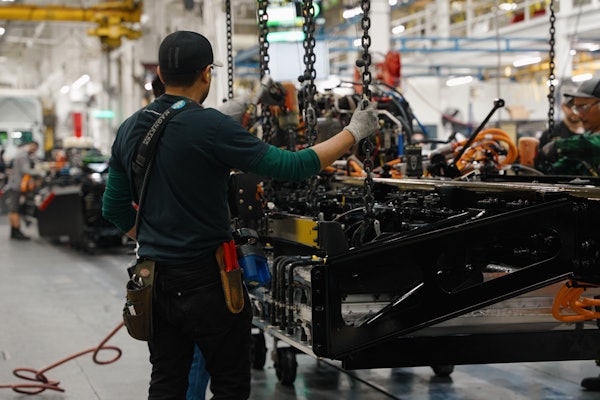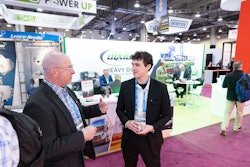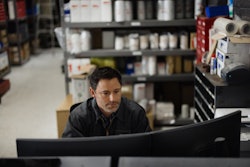By Truck Parts & Service Staff
WHY DID YOU START THE BUSINESS?
PTS was started by Jack Leffel, the father of my partner, Joe Leffel. I saw the potential of being in a fast-growing segment of a growing industry. My partner, Joe, had the product expertise and my background (partner in a CPA firm specializing in acquisitions and mergers) made a perfect partnership. We have grown through the acquisition of eight other businesses. In the 1970s and 1980s, the industry grew at a very fast rate.
WHAT’S BEEN YOUR TOUGHEST BUSINESS DECISION?
In the late 1980s, we acquired a driveline business in Cleveland. We partnered with a local company that ran the day-to-day operations. It was our first and last partnership. We now stay within a one-day roundtrip drive from all of our locations, and run them all ourselves.
It was very difficult for us to admit that we had made a bad decision in the acquisition (geographically) and in assuming the managing partner understood our approach to the market. It was an unhappy day when we closed the operation and were forced to let people go.
WHAT IS THE BEST WAY TO KEEP A COMPETITIVE EDGE?
TRAINING, TRAINING, TRAINING!
We’re constantly aware of the need to keep up with product technical knowledge. We believe in maintaining a robust IT system that will give us feedback giving us business opportunities, current conditions and creating working capitol. Another vital key is internal and external communication. We practice constant communication with our staff and our customers.
WHAT IS YOUR FIVE-YEAR VISION?
We need to model PTS after other industries that have matured. We need to be a low-cost remanufacturer and handler of products, and be the No. 1 player in the three segments in our geographic market. We need to have a national footprint for our remanufactured products. And we need to be nimble, to change direction as business conditions demand.
WHAT IS YOUR BUSINESS PHILOSOPHY?
The glass is half full. If it doesn’t add to the bottom line, either long or short term, don’t do it. Add value to our products when we can. Stay on the leading edge of technology and education. Retain, train and build a forward-looking team (our most valuable asset). Treat your internal and external customers with fairness and respect.
We believe in treating all levels of employees with the same respect we would our customers. For example, our counter people should be treated like customers of our warehouse people, our sales staff are like customers to our counter people. In any organization all people are dependant upon each other to perform their functions at the highest level.
WHAT IS THE BIGGEST CHALLENGE FACING THE AFTERMARKET?
The growth of the dealers, rollups and venture capitalists is the biggest challenge. These groups tend to sell on price. They have a large capital base to enable them to sustain losses for a period of time. In these difficult times, price is a bigger issue with our customers than in the past. Being part of a buying group (like HDA) helps in the cost of acquiring products.
HOW DO YOU SEE THAT CHALLENGE BEING RESOLVED?
The fast moving parts will continue to have lower and lower margins and will not sustain companies that only sell these products. The key is to continue to sell value added, technical expertise and build solid relationships with your customers. Buying groups like HDA (PTS is a member) add national fleet business, better buying power and technology to its members. Distributors need to exceed customers expectations.
DURING YOUR TIME IN THE INDUSTRY, WHAT HAS BEEN THE MOST SIGNIFICANT CHANGE?
In the 1990s, the rollup groups started consolidation. Then came the venture capitalists. Now the OEs are setting up separate product lines with low cost imported products. Add to this the large automotive groups, like Traction, are starting to get into the business. This has given them a national footprint, buying power and access to a large capital base. If an independent is not in a buying group, it is in trouble.
WHAT ADVICE WOULD YOU GIVE A YOUNG PERSON CONSIDERING A CAREER IN THE AFTERMARKET?
There are a lot of misconceptions about the aftermarket. The aftermarket is now very sophisticated. You will have challenges in putting together and executing business, marketing strategic plans, etc. You will be dealing with a worldwide supply base needing quality control. You’ll be using leading technology on component parts and running your business. The field is no longer mom and pop stores, but multiple locations and sophisticated business. You will be getting in on the ground floor of a multibillion dollar industry.
HOW DOES YOUR BUSINESS CONTRIBUTE TO THE COMMUNITY?
Power Train personnel have been on numerous boards of non-profit organizations. Our technical people have been on boards of trade schools and have taught their instructors who are teaching the technicians of the future. We have hired students from these schools and provided products to use in their classrooms.
WHAT MOTIVATES YOU EVERY DAY?
Every day there are new challenges and opportunities. There are very few days that are routine. Interfacing with quality industry people and learning from them is very rewarding.







